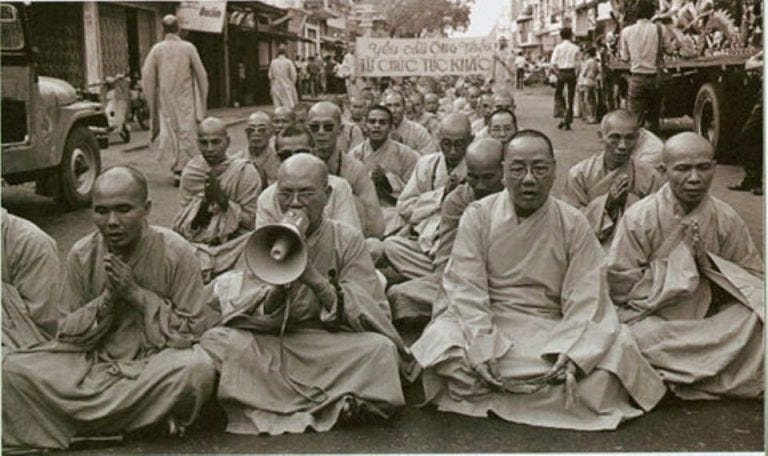I often tell people the most formative parts of my seminary experience weren’t the Buddhism classes, but the people I met, the social ethics courses I took, and the lectures on critical theory. These courses helped me better understand the Western context in which Buddhism has been transmitted, while providing a deeper analysis of the economic and social forces at the root of societal suffering.
In many ways, these classes were the missing puzzle pieces in my dharma education. I already knew Buddhism offered a path for radical personal transformation—its teachings and practices had been life-changing for me in my own relationship to suffering. But in regards to how suffering was reproduced on a systemic and cultural scale? I had broad stroke ideas but lacked the analytical rigor for it to fully inform my politics and activism.
Radical Change is a newsletter and community for anyone who is grappling with what Buddhism has to offer this moment of social, political, and ecological decay. It’s a space where dharma, social ethics, and critical theory can meet, wrestle, and grow together.
In this space, we can discuss mutual aid, post-capitalism, and the nature of power—alongside the Buddha’s teachings on ethics, compassion, and the nature of suffering. It’s a place where political and spiritual transformation go hand in hand.
I believe the absence of such spaces is one of the reasons Western sanghas and Buddhist organizations often inadvertently replicate the very social inequalities, power dynamics, and abuses that engaged Buddhism seeks to heal. Similarly, the lack of spiritual worldview, embodied practices, and ethical guidelines are the reason why radical political spaces can often recreate the supremacy culture they purport to challenge.
Twice a month, I share reflections on engaged Buddhism and radical social change. Paid subscribers gain additional access to monthly book clubs, workshops, and weekly meditation gatherings through the Radical Change Community.
I’m honored and so excited to share this newsletter with you. If you’re seeking a space to explore the intersection of dharma and social change, come join me!



